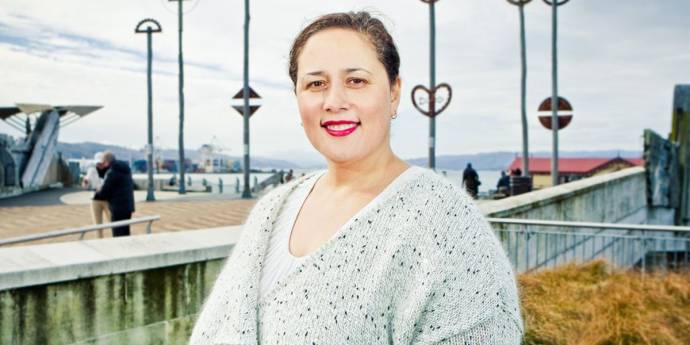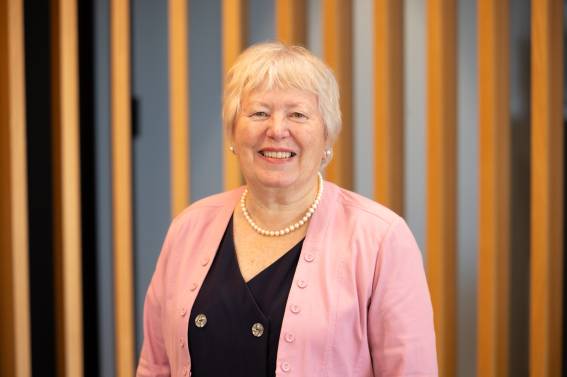Governance news bites – 4 April 2025
A collection of governance-related news that you might have missed in the past two weeks.

Tui Te Hau
The role of diversity has been pivotal to discussions in and out of the boardroom, including a drive for boards to reflect the makeup of New Zealand’s rapidly changing demographic. One of the pathways established by the Institute of Directors to promote diversity in our governance landscape is through Mentoring for Diversity. This is a year-long programme aimed at experienced directors, working their way to non-executive director roles with large private companies or public sector boards, NZX-listed boards, or those interested in becoming a trustee for a large, not-for-profit organisation.
The Mentee
Tui Te Hau (MInstD) has been involved in governance for the past decade and has current board roles with Dev Academy, Endometriosis New Zealand and Mary Potter Hospice. But it was only when she was accepted as a mentee on the Mentoring for Diversity programme in 2023 that really got her thinking about her purpose, and the drive to sit on boards.
From a career perspective, it was that logical next step. “It provided me with an opportunity to have an overview of other industries and come face-to-face with new challenges that needed to be overcome,” she says.
“It became clear to me while I was on the programme that, first, I want to be of service, and second, it's that intellectual stimulation that I wasn't getting in my day-to-day job that I really value. You're always learning, that's what I love.”
Gaining that clarity has been invaluable for Te Hau, who came away from the programme instilled with an unexpected dose of confidence. “The course made me realise that I have something to say. I have domain expertise in business accelerators and innovation and am wahine Māori, I don't want either of those to be discounted,” Te Hau says.
For those interested in applying for the programme, Te Hau says it is helpful to have a clear idea about the kind of mentor you would like to be matched with and a willingness to be open and committed to the process to ensure you get the most out of the experience. When she joined the programme, Te Hau was working with a public agency and was perfectly paired with leadership coach Denise Church, a former CEO for the Ministry for the Environment, who offered her the support and insights she needed to strengthen her knowledge of public sector governance.
“That was really amazing! Denise and I met about six or seven times and it was really valuable to go to her and explore a question or issue.”
As part of the programme there are additional workshops, which Te Hau reinforces are important to attend. As well as providing insights from other experienced directors, the sessions also provide an opportunity to engage with others in the same cohort.
Since finishing the programme, Te Hau has landed her first substantive, paid board role – something she attributes to gaining more confidence during the mentoring programme – and in the foreseeable future, she would like to be an independent, professional director, “What I find with governance is that there's always some challenge around the corner, so I'd like to contribute more to things that really shape the nation and that are really going to make a difference.”

Denise Church
The Mentor
“Mentoring both from the mentor and the mentee is the conscious setting aside of time to have an intentional conversation in a safe space about the quality of governance contribution, and how we each extend it,” says Wellington-based Denise Church (QSO, CFInstD), Chair of Airways NZ and the director of Leadership Matters NZ.
“It was a real privilege to work with Tui,” says Church, who describes her mentee as generous in sharing her background and insights that come from a different sector than her own, “so that was a really rich part of the process”.
Church has been involved with the Mentoring for Diversity programme since its inception in 2012, when she participated as a mentee. Blown away by the breadth and extent of knowledge and experience brought equally by the mentees and mentors, it quickly became apparent that there is an equal exchange that happens through the process – a by-product of the differences that each person brings to the year-long process.
Also a professional executive coach, Church says mentoring is about ‘tuning into your practice and being intentional’.
“I often say to people that the All Blacks don't stop practising because they're good at rugby. So for me, mentoring fits into a wider array of continuing development and enhancing good professional practice – a mentoring scheme gives it a degree of intention and formality,” says Church.
Being a mentor has also fed back into Church’s own perspective on how to work with those new to governance. Directly informing her role as a chair and different ways to support younger directors joining the board.
She describes a tendency that exists for boards to “overplay the absence of developed experience” in younger directors in terms of their qualification to sit on boards. But in fact, she argues, younger voices in the mix bring tremendous value and insights. “They come from a different generation and their experiences can’t be replicated by someone like me,” she says.
For Church, the mentoring process is about active reflection or feedback, processing next steps and road mapping to create a personal developmental pathway so a director “can increase the value of their contribution”.
“It's a healthy thing to ask ourselves, ‘what do I need to be thinking about to be at the top of my game so that I can make my best contribution?’ Frankly, if we're not doing that collectively as boards, and individually as directors, we're missing a trick.”
Applications for the 2024 Mentoring for Diversity Programme open on 18 March, and close on 8 April. Find out more here.